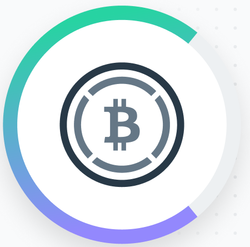
Prosecutors in New York arrested cryptocurrency trader Avraham Eisenberg in Puerto Rico and charged him with fraud for rigging the Mango Markets exchange and attempting to steal $114 million.
Eisenberg is accused of manipulating the price of Mango perpetual swaps, which are futures contracts that allow traders to keep bets open. According to a federal complaint released Tuesday, he only required 20 minutes to increase the price of the swaps by 1,300%.
According to the lawsuit, Eisenberg utilized his swaps, which had gained in value, to borrow and subsequently withdraw approximately $114 million in various cryptocurrencies obtained from other investors’ deposits on the exchange.
“Due to Eisenberg’s withdrawals, other investors with deposits on Mango Markets lost much, or all, of those deposits,” the complaint says.
He then admitted to being one of the hackers behind said Mango exploit, and he returned $67 million while defending his activities as a “very profitable trading approach.”
Eisenberg was charged with commodities fraud and manipulation by the US Attorney’s Office in Manhattan. According to the court documents, he did not have a counsel.
In defending his actions four days after the attack, Eisenberg tweeted: “I believe all of our actions were legal open market actions, using the protocol as designed, even if the development team did not fully anticipate all the consequences of setting parameters the way they are.”
“I helped negotiate a settlement agreement with the insurance fund with the goal of making all users whole as soon as possible as well as recapitalizing the exchange,” he added.
Users of Mango Market, a decentralized autonomous organization (DAO), voted in favor of Eisenberg repaying $67 million to the exchange, which meant he kept the remaining $47 million.
He was also accused in February with stealing $14 million from Fortress DAO, a project on which he was the principal developer. Eisenberg allegedly misused the project’s treasury redemption mechanism, which was intended to transfer remaining funds to token holders once the DAO shut down operations.
Eisenberg’s recent antics in November involved the trader using the decentralized lending platform Aave to borrow 40 million curve (CRV) tokens (worth $20 million at the time), which he then transferred to the OKEx crypto market.
However, Eisenberg’s stake looks to have been liquidated following a series of dramatic fluctuations in the CRV price.
According to blockchain analysis firm Arkham, Eisenberg borrowed the majority of the CRV tokens on Aave by putting $40 million in USDC stablecoin as collateral.
Blockchain experts on Twitter suggested that he appeared to be accumulating a CRV short position in order to profit from a price decrease. Based on CoinDesk pricing data, the price of CRV fell early Tuesday, then soared up 75% within a few hours in what appeared to be a short squeeze.
According to blockchain data from Blockanalitica, all of Eisenberg’s CRV loan was liquidated, leaving Aave with $1.6 million in bad debt. The sum is small in comparison to the protocol’s total value of $6 billion.
Information for this briefing was found via Bloomberg, Coindesk, OCCRP, Protos, and the sources mentioned. The author has no securities or affiliations related to this organization. Not a recommendation to buy or sell. Always do additional research and consult a professional before purchasing a security. The author holds no licenses.













































































Be the first to comment